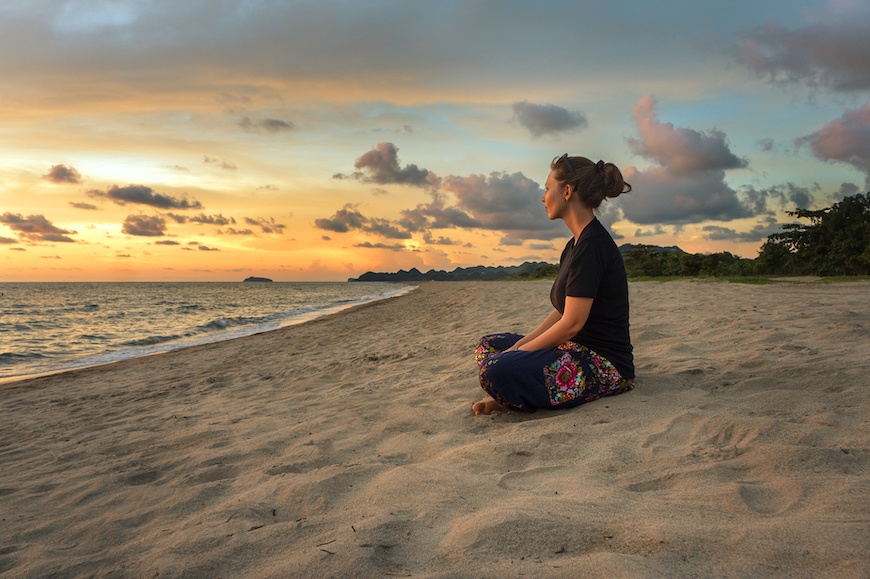
September 22, 2019 at 04:00PM by CWC
Radical suggestion for your next vacation: Toss your travel itinerary, delete your friend’s email full of suggestions, and unfollow that “All Who Wander Are Not Lost” Pinterest board. Why? According to psychologist Laurie Santos, PhD, striving for max idle time, which she calls time affluence, is the key to really, truly enjoying your time away. And she would know; the Yale Professor teaches the happiness-maximizing course “Psychology and the Good Life” and hosts the newly launched podcast The Happiness Lab.
But uh, wait: What is time affluence, anyway? It’s basically as it sounds: deriving value and joy from an abundance of unscheduled idle time. And, better yet, this idle time is noted to bring about great joy. In fact, studies consistently demonstrate that not only do we value time over money, but being able to have that empty, mindful time can being hugely beneficial to your psychological well being.
And for all you naysayers quick to point out that this sounds equal parts nice and impossible given long days and social-obligation-laden weekends, I do hear you. Like financial affluence, there’s a level of privilege tied to achieving this sacred free time on a regular basis. But, when we’re talking about vacation, what’s your excuse? Though you may have trouble abiding by your own OOO message, you ostensibly do have more control over how you’re spending your time and mental energy when you’re away.
The best way to start? Turn off your push notifications, and consider removing email from your phone altogether. According to applied social psychologist Jamie Gruman, PhD, since simply leaving the office won’t won’t psychologically detach you from work, you need to completely leave your office life behind.
Learn to discern what you truly want to experience from what you feel you should experience.
When that’s taken care of, work on silencing that feeling of needing to cram every single moment with activity for fear you might miss something important, or that without having done it, the trip wouldn’t have been “worth it.” This might require soul searching for discerning what you truly want to experience from what you feel you should experience. For example, if you’re heading to Paris with dreams of reading outside at a quaint bistro, just ignore all those people who told you to spend a whole afternoon at the Louvre—and cut yourself a break for having this internal struggle in the first place.
ADVERTISEMENT
ADVERTISEMENTKate Spade Autumn/Winter Sale |
“As a country, we developed along the Protestant work ethic [which emphasizes industry and discipline],” Dr. Santos recently told Afar. “But the psychological data shows that’s an incorrect notion: You get a lot more out of free time than you expect.”
So with all of your travels, consider taking the advice that when in Rome, it’s best to do as the Romans do—and then some. When in Barcelona, take midday siesta. And when in the Netherlands, slip into the Dutch art of doing nothing, niksen. Even though you can’t ignore your Google Calendar forever, you can certainly lean into time affluence while you have it when traveling.
Check out what happened when one writer scheduled time to be bored. And here’s how to hit the reset button when you’re feeling overwhelmed past the point of dysfunction.
Author Mary Grace Garis | Well and Good
Selected by CWC
ADVERTISEMENT
ADVERTISEMENTUp to 30% off Gift Sets |




